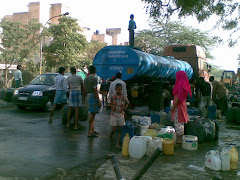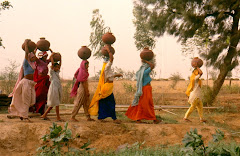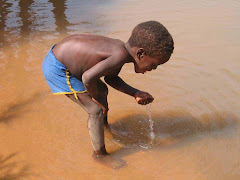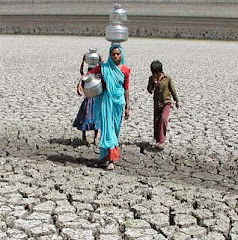Man's quest for additional water supplies in the wake of a growing global scarcity could very well stop within. At least that's what one of the experts expects in the time to come.
Dr James Barnard, recipient of this year's Lee Kuan Yew Water prize, feels at some stage in the near future, urine recovery could turn out to be an additional source of water.
To some the idea may seem repulsive, but Barnard, who is hailed as the 'Father of Biological Nutrient Removal' and recognised for using micro-organisms to treat used water for the protection of lakes and rivers, is serious about the potential of the idea.
And, he ought to know what works best.
Barnard was given the Lee Kuan Yew Water prize for his groundbreaking invention of the Biological Nutrient Removal (BNR) technology, an environmentally sustainable, biological method to treat used water.
The technology has revolutionised used water treatment processes by using naturally occurring micro-organisms instead of conventional chemicals to remove nitrogen and phosphorus from water. It helps to protect water quality in lakes and rivers, while minimising negative impact on the environment. It also promotes the recycling of water.
According to a news report in Singapore, where Barnard received the prize during the Singapore International Water Week (SIWW), some parts of the world are already quite advanced in what he calls "urine recovery".
Barnard was quoted as saying, "It's already happening, a lot of people just don't know it and accept it therefore".
The scientist thinks it would be better to facilitate the process of urine collection before it gets diluted in wastewater. For this he suggets dual flushing toilets where urine flows through separate pipes, directly to wastewater treatment plants.
Barnard gives the example of a suburb in Stockholm, Sweden, where such a facility already exists.
"I'm thinking in new developments like perhaps golf courses. Most of these developments have housing around them. Why should we not separate the urine in that and re-use it on the fairways? I think that's where we can make a start in the developed world. We cannot go into the buildings and change those toilets."
Urine, when treated could be a resource for drinking and agricultural use. Its by-products could also be used as a source of energy and fertilisers, Barnard was quoted as saying in the news report.
By the way, people in a Latam country were encouraged to urinate while taking a bath. The idea was to save water in flushing.
Tuesday, July 5, 2011
Subscribe to:
Posts (Atom)

.jpg)


